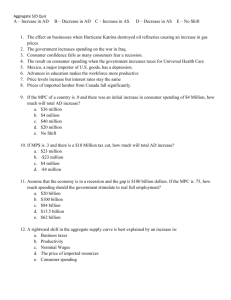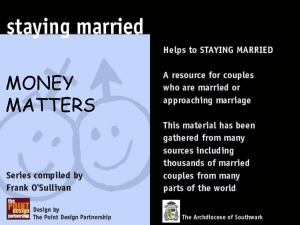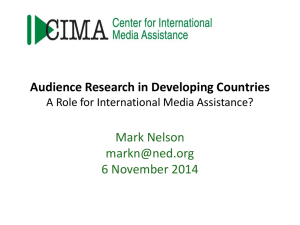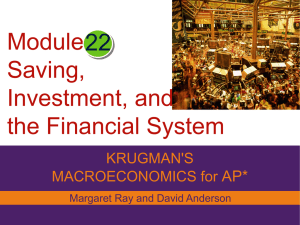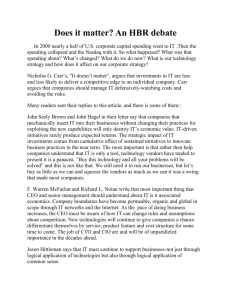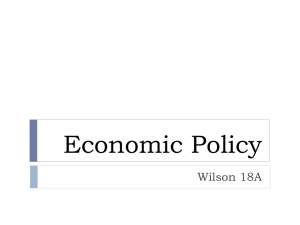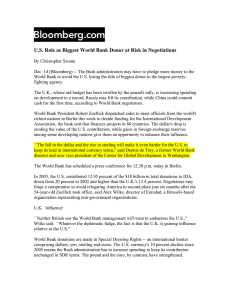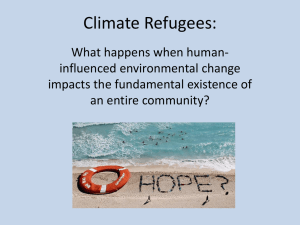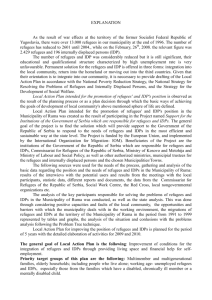The world's poor lose out as aid is diverted to the refugee crisis
advertisement
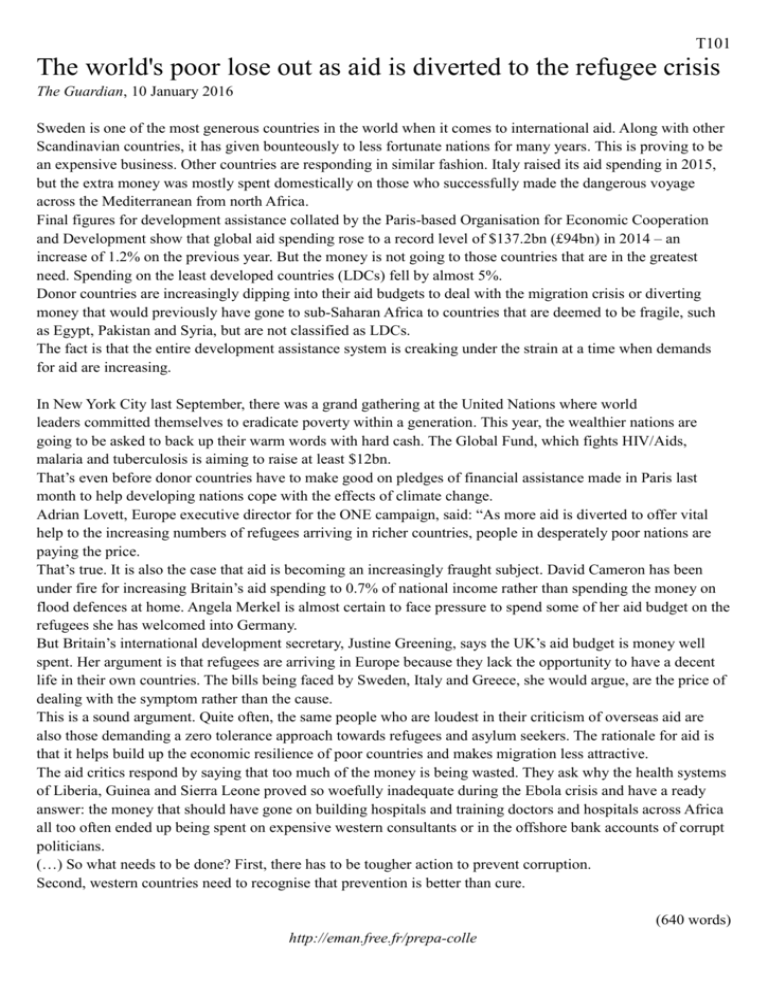
T101 The world's poor lose out as aid is diverted to the refugee crisis The Guardian, 10 January 2016 Sweden is one of the most generous countries in the world when it comes to international aid. Along with other Scandinavian countries, it has given bounteously to less fortunate nations for many years. This is proving to be an expensive business. Other countries are responding in similar fashion. Italy raised its aid spending in 2015, but the extra money was mostly spent domestically on those who successfully made the dangerous voyage across the Mediterranean from north Africa. Final figures for development assistance collated by the Paris-based Organisation for Economic Cooperation and Development show that global aid spending rose to a record level of $137.2bn (£94bn) in 2014 – an increase of 1.2% on the previous year. But the money is not going to those countries that are in the greatest need. Spending on the least developed countries (LDCs) fell by almost 5%. Donor countries are increasingly dipping into their aid budgets to deal with the migration crisis or diverting money that would previously have gone to sub-Saharan Africa to countries that are deemed to be fragile, such as Egypt, Pakistan and Syria, but are not classified as LDCs. The fact is that the entire development assistance system is creaking under the strain at a time when demands for aid are increasing. In New York City last September, there was a grand gathering at the United Nations where world leaders committed themselves to eradicate poverty within a generation. This year, the wealthier nations are going to be asked to back up their warm words with hard cash. The Global Fund, which fights HIV/Aids, malaria and tuberculosis is aiming to raise at least $12bn. That’s even before donor countries have to make good on pledges of financial assistance made in Paris last month to help developing nations cope with the effects of climate change. Adrian Lovett, Europe executive director for the ONE campaign, said: “As more aid is diverted to offer vital help to the increasing numbers of refugees arriving in richer countries, people in desperately poor nations are paying the price. That’s true. It is also the case that aid is becoming an increasingly fraught subject. David Cameron has been under fire for increasing Britain’s aid spending to 0.7% of national income rather than spending the money on flood defences at home. Angela Merkel is almost certain to face pressure to spend some of her aid budget on the refugees she has welcomed into Germany. But Britain’s international development secretary, Justine Greening, says the UK’s aid budget is money well spent. Her argument is that refugees are arriving in Europe because they lack the opportunity to have a decent life in their own countries. The bills being faced by Sweden, Italy and Greece, she would argue, are the price of dealing with the symptom rather than the cause. This is a sound argument. Quite often, the same people who are loudest in their criticism of overseas aid are also those demanding a zero tolerance approach towards refugees and asylum seekers. The rationale for aid is that it helps build up the economic resilience of poor countries and makes migration less attractive. The aid critics respond by saying that too much of the money is being wasted. They ask why the health systems of Liberia, Guinea and Sierra Leone proved so woefully inadequate during the Ebola crisis and have a ready answer: the money that should have gone on building hospitals and training doctors and hospitals across Africa all too often ended up being spent on expensive western consultants or in the offshore bank accounts of corrupt politicians. (…) So what needs to be done? First, there has to be tougher action to prevent corruption. Second, western countries need to recognise that prevention is better than cure. (640 words) http://eman.free.fr/prepa-colle
